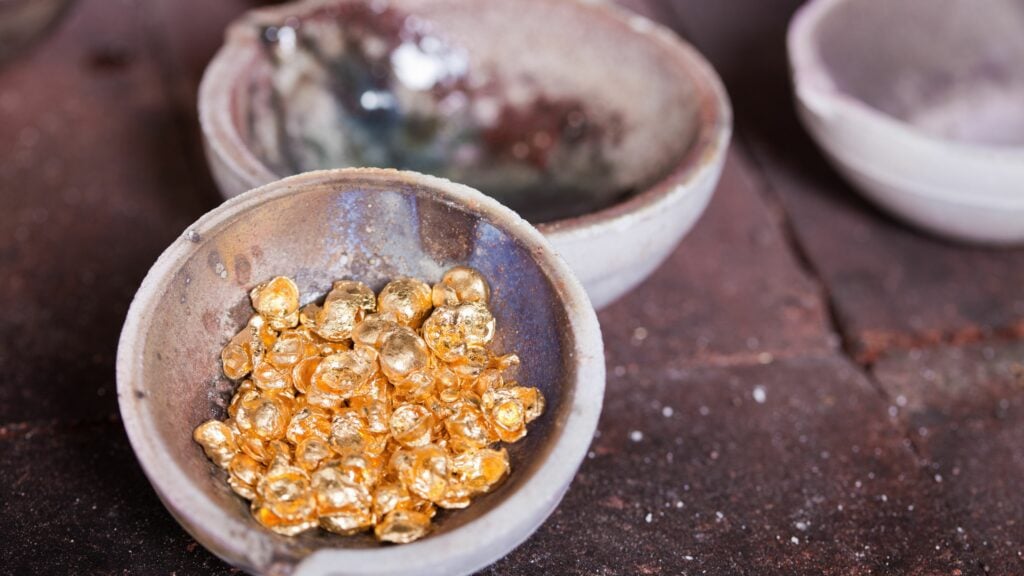Alchemists attempted to purify and perfect certain metals. In 1669, Hennig Brandt was looking for a way to make gold. Instead, he discovered phosphorus. But did you know that we can make gold from common metals with the technology we have available today?
Common metals can be transformed into gold by using a nuclear reactor or a particle accelerator. But, the whole process is quite expensive and would defeat the purpose of making gold in the first place.
What is Alchemy?
The term alchemy is used to describe an ancient practice shrouded in secrecy. Alchemists were very invested in turning common metals, like lead, into gold. For centuries, people have thought of striking it rich when they discover the secret of doing so. As the years passed, the goals behind alchemy went beyond just creating gold.
Beginning about the year 100 and reaching its flower in medieval times, alchemy was an art based partly upon experimentation and partly upon magic. Early investigators of natural processes centered their search on a mythical substance they knew as philosopher’s stone, which was supposed to possess many valuable attributes such as the power to heal, to prolong life, and to change base metals into precious metal — such as gold.
James Randi, Encyclopedia of Claims, Frauds, and Hoaxes of the Occult and Supernatural
According to Nevill Drury, a historian, the word alchemy is derived from the Egyptian word chem or qem, which means black. This is in reference to the black alluvial soils of the Nile.
The alchemists did not regard all metals as equally mature or ‘perfect.’ Gold symbolized the highest development in nature and came to personify human renewal and regeneration. A ‘golden’ human being was resplendent with spiritual beauty and had triumphed over the lurking power of evil. The basest metal, lead, represented the sinful and unrepentant individual who was readily overcome by the forces of darkness … If lead and gold both consisted of fire, air, water, and earth, then surely by changing the proportions of the constituent elements, lead could be transformed into gold. Gold was superior to lead because, by its very nature, it contained the perfect balance of all four elements.
Nevill Drury, Magic and Witchcraft
(Source: Live Science)
How Can You Create Gold from Other Elements?
Yes, you can create gold from other elements, but the process is quite complex. To make this possible, you need to acquire costly machines. Since the process is technically expensive, you cannot make enough from the gold you make.
Let’s talk about lead. While it is possible to make lead into gold, you would need to use a particle accelerator and a massive amount of energy supply.
For more than three decades, nuclear scientists at the Lawrence Berkeley National Laboratory (LBNL) were able to develop a process to turn bismuth into gold. Unfortunately, they were producing tiny amounts. The whole process they used would also work with lead.
We could have used lead in the experiments, but we used bismuth because it has only one stable isotope. The stable isotope would have to be observed in a mass spectrometer, but I think that the number of atoms was, and is still, below the level of detection by mass spec.
David J. Morrissey
In 1980, when the experiment was conducted, the team computed the costs for making such a small amount of gold. By simply running the particle beams, it already cost them $5,000 an hour. It would have cost more than a quadrillion dollars per ounce to produce artificial gold this way. At the time, gold cost $560 an ounce. (Source: Scientific American)
